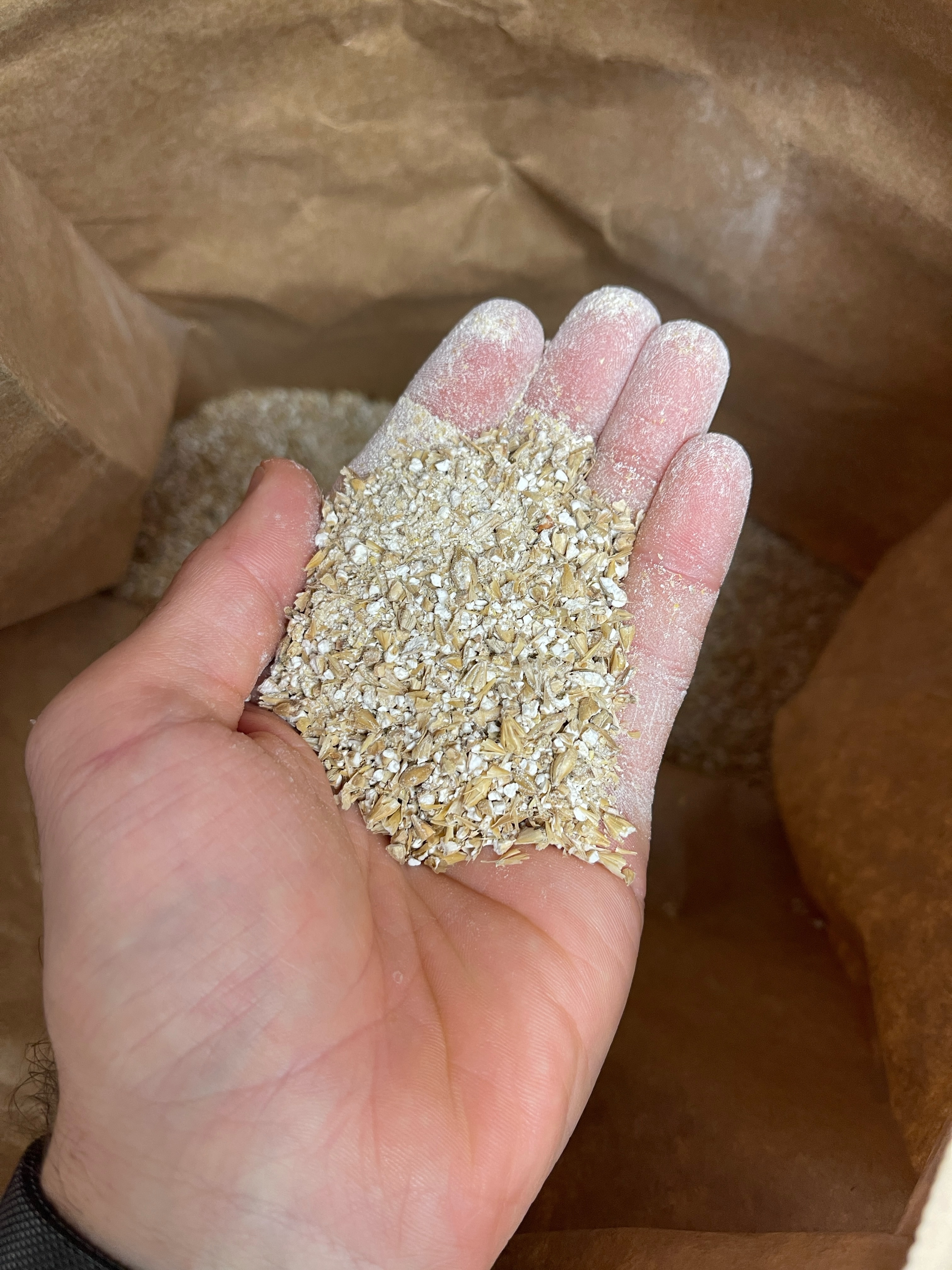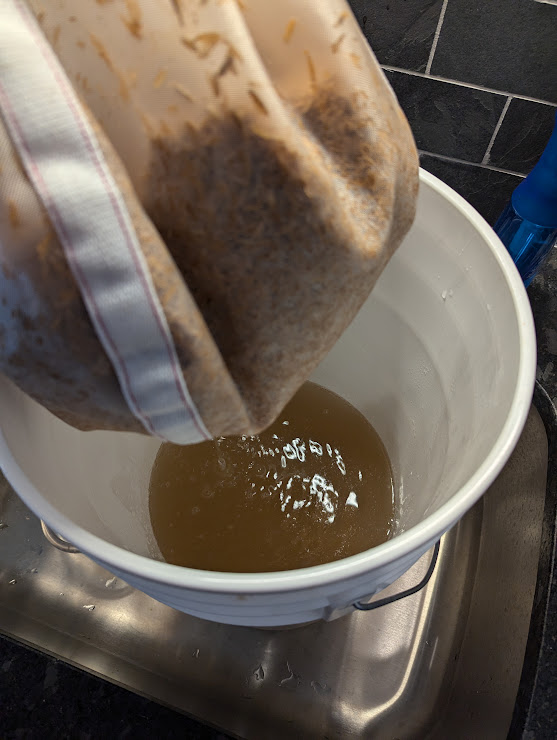CafeRoaster
Active Member
Had my LHBS store mill up this batch, just like the last two brews. The mill is not adjustable. I'm using the same recipe and grains as the last two brews as well.
I noticed the pump starting to sound like a washing machine. I couldn't figure out what was happening, but finally saw that there was no liquid below the grain basket. Picked it up and nothing even trickled out. Put it back in, stirred up the grain bed, and it still barely trickled out. I texted my dad (much more experienced brewer). He said 3.7 gallons was not enough for 8.56 lbs for grains to mash with. I added 3 gallons, and it started working much better. I'm still mid-mash, and I'm having to break up the dough ball every five minutes!
Anyone know what's happening?
Attaching recipe and image of grain crush. Grainfather suggested 3.7 gallons to mash with, Brewfather suggest 4 gallons.

I noticed the pump starting to sound like a washing machine. I couldn't figure out what was happening, but finally saw that there was no liquid below the grain basket. Picked it up and nothing even trickled out. Put it back in, stirred up the grain bed, and it still barely trickled out. I texted my dad (much more experienced brewer). He said 3.7 gallons was not enough for 8.56 lbs for grains to mash with. I added 3 gallons, and it started working much better. I'm still mid-mash, and I'm having to break up the dough ball every five minutes!
Anyone know what's happening?
Attaching recipe and image of grain crush. Grainfather suggested 3.7 gallons to mash with, Brewfather suggest 4 gallons.
























































![Craft A Brew - Safale BE-256 Yeast - Fermentis - Belgian Ale Dry Yeast - For Belgian & Strong Ales - Ingredients for Home Brewing - Beer Making Supplies - [3 Pack]](https://m.media-amazon.com/images/I/51bcKEwQmWL._SL500_.jpg)


